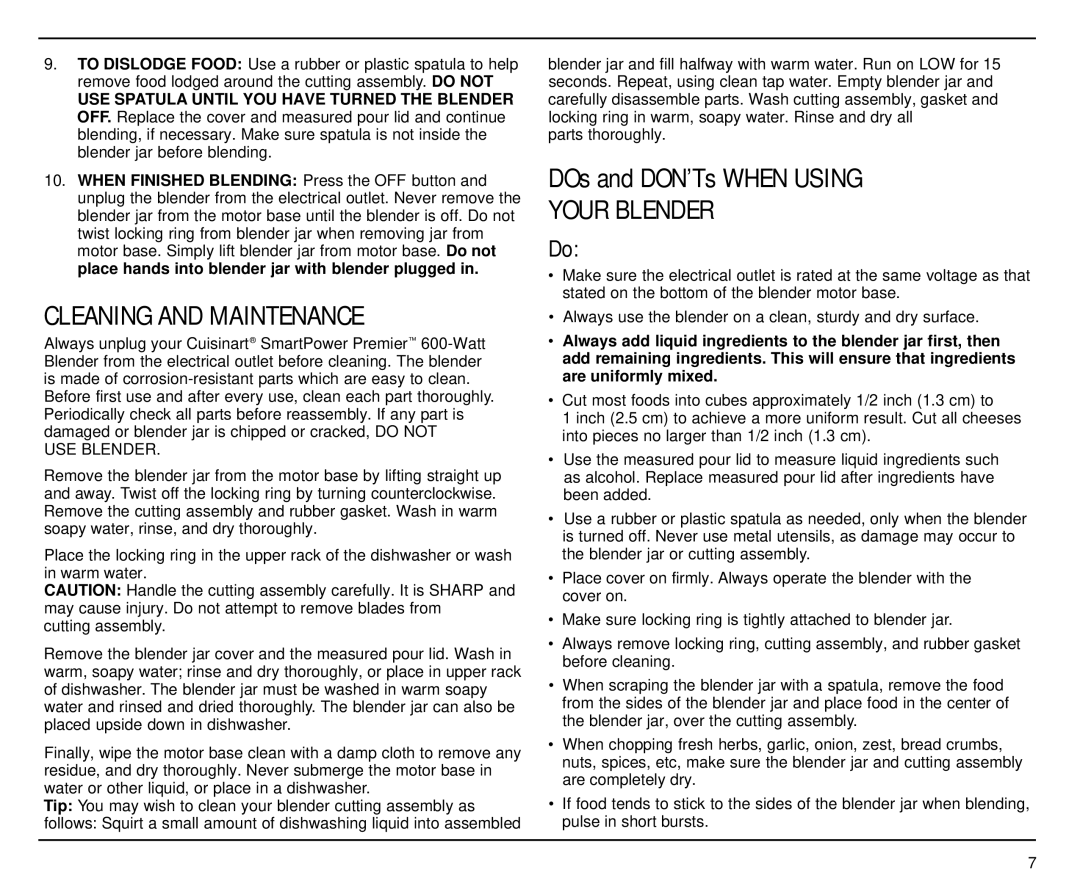CBT-500 specifications
The Cuisinart CBT-500 is a powerful and versatile blender designed to meet the needs of both home cooks and professional chefs. Renowned for its performance and durability, this blender comes packed with features that make it a staple in any kitchen.One of the standout attributes of the Cuisinart CBT-500 is its robust 1,000-watt motor. This powerful engine allows the blender to easily crush ice, blend tough ingredients, and achieve smooth consistency, whether you’re making smoothies, soups, or sauces. The high power ensures that even the most challenging blending tasks can be handled with ease, making preparation quick and efficient.
The design of the CBT-500 showcases a sleek and modern aesthetic, complemented by a durable glass jar that holds up to 56 ounces. This generous capacity makes it ideal for preparing large batches, accommodating family dinners, or entertaining guests. The glass jar also ensures that blended ingredients are easily visible, enhancing the experience of blending and serving.
Equipped with stainless-steel blades, the CBT-500 guarantees long-lasting performance and exceptional blending ability. The blades are designed to pulverize ice and blend ingredients thoroughly, ensuring a perfect texture every time. The sharpness of the blades, combined with the motor power, allows users to achieve everything from silky smoothies to chunky salsa.
This blender features multiple speed settings and a pulse function, giving users complete control over the blending process. Whether you need a gentle mix or a quick burst of power, the variable speed options allow for customized results. This added versatility is essential for those who enjoy experimenting with recipes or have specific texture preferences.
Another notable characteristic of the Cuisinart CBT-500 is its safety features, including a locking lid to prevent spills and ensure safe operation. The blender also comes with a detachable blade assembly, making cleanup straightforward and hassle-free.
Overall, the Cuisinart CBT-500 exemplifies quality, performance, and design. Its combination of a powerful motor, durable construction, versatile speed settings, and user-friendly features make it an excellent choice for anyone looking to enhance their culinary skills. Whether you’re blending smoothies for breakfast or preparing sauces for dinner, the CBT-500 is sure to impress with its efficiency and reliability.

